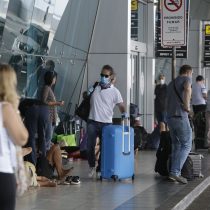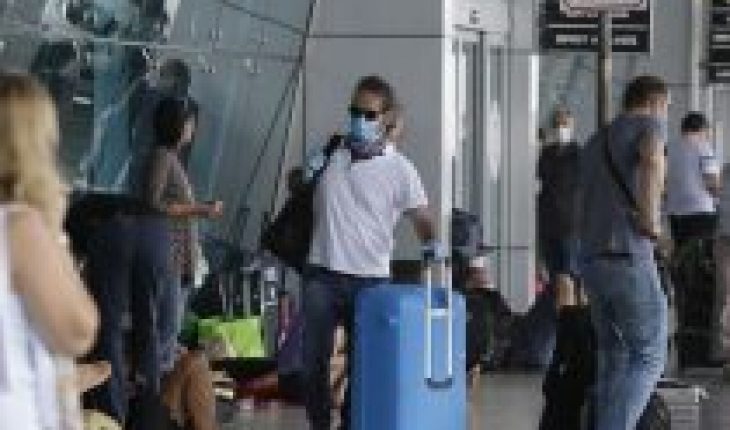
Thousands of Europeans outside their countries, mainly for tourism, are trying to rush back to the sharp increase in COVID-19 cases and restrictive measures, especially quarantine, imposed by various governments to try to stem what appears to be a second widespread wave of the pandemic.
Countries such as France, the United Kingdom, Germany or Spain are some of the most affected – whether active or passive – by the new measures, which can lead to a massive movement of people, many of whom had decided to move to spend a few days on holiday and now fear being confined to their destination, or endure strict quarantine upon their return home.
Fear of a second wave of the Covid-19 pandemic is growing in Europe in the face of rising cases in these countries, which in recent days have a rate of virus expansion above a thousand positives every 24 hours.
Most countries in the Schengen area already set significant travel restrictions for Spain, but now they are also extended to other countries that are experiencing increased contagion. The United Kingdom, for example, already imposes quarantine on travellers from France, resulting in thousands of British tourists having advanced the return of their holiday before the measure came into effect.
Quarantine also applies to travellers returning or visiting the UK from the Netherlands, Monaco, Malta, the turks and caicos islands and Aruba.
Moreover, Germany has considered Spain a “risk zone” so it does not recommend traveling for tourist reasons to the country except the Canary Islands. France has not yet established measures for Spain, while Belgium continues to introduce in its orange and red areas to different provinces of Spain in the face of an excessive increase in positives.
The country also recommends that people arriving from twenty French departments (including those in the Paris region) be quarantined and tested for the coronavirus.
Contagions continue to grow in Italy and health authorities link this increase in cases in the country with the arrival of tourists or Italians returning from their holidays abroad, as well as nightlife activities. Since the 13th day, health authorities have been monitoring all people arriving from countries in Spain, Malta, Greece and Croatia, considered at risk.
On the other hand, Brussels calls for coordination and unity so that this avalanche of restrictions and massive return to their homes of Europeans does not result in a stopping tourism that affects the waterline of European countries.
Thousands of Albanians remain blocked in precarious conditions on the border with Greece, waiting to enter the neighbouring country, which from this week will restrict enters by land in order to prevent the spread of coronavirus.
Most of those affected are Albanian migrants who are rushing back to Greece to work after spending their holidays in their home country and thus being able to avoid the new rules that will come into force in Greece.





